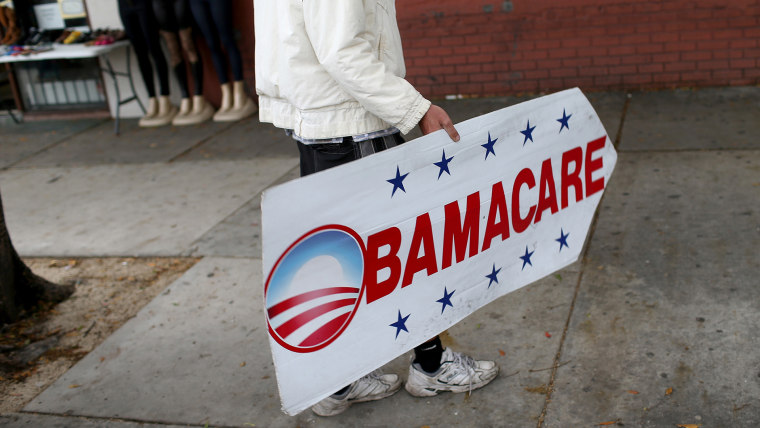As the political, legal, and policy worlds come to terms with Friday night's ruling rejecting the Affordable Care Act as unconstitutional, it's tempting to think we'd see a debate unfold along predictable partisan and ideological lines. Democrats and health care advocates will condemn the far-right jurist's judicial activism, while Republicans and "Obamacare" critics will defend the ruling as a reasonable step in the right direction.
That's not quite what's happening, at least not entirely.
Nicholas Bagley, a law professor at the University of Michigan and prominent health care advocate, wrote an op-ed in the Washington Post over the weekend, explaining, "The legal arguments in previous rounds of litigation over the ACA may have been weak, but they were not frivolous. This case is different; it's an exercise of raw judicial activism. Don't for a moment mistake it for the rule of law."
What strikes me as important, however, is how many conservatives agree with Bagley's conclusion.
Lawyers on both sides of previous A.C.A. battles said the reasoning behind this one was badly flawed, notably in its insistence that the entire 2010 law must fall because one of its provisions may have been rendered invalid by the 2017 tax overhaul legislation. Had Congress meant to take such radical action, they said, it would have said so at the time.
Ted Frank, a lawyer at the Competitive Enterprise Institute who is critical of the ACA, told the Washington Post the decision was "embarrassingly bad" because "you're twisting yourself into knots" to reach a particular conclusion.
Perhaps the most striking piece came from Case Western Reserve University School of Law's Jonathan Adler and Yale Law School's Abbe Gluck, who co-authored an op-ed in the New York Times, despite having fought on opposite sides of the issue:
A ruling this consequential had better be based on rock-solid legal argument. Instead, the opinion by Judge Reed O'Connor is an exercise of raw judicial power, unmoored from the relevant doctrines concerning when judges may strike down a whole law because of a single alleged legal infirmity buried within.We were on opposing sides of the 2012 and 2015 Supreme Court challenges to the Affordable Care Act, and we have different views of the merits of the act itself. But as experts in the field of statutory law, we agree that this decision makes a mockery of the rule of law and basic principles of democracy — especially Congress's constitutional power to amend its own statutes and do so in accord with its own internal rules.
In an interview with Bloomberg News, Adler, who helped craft the King v. Burwell case against the ACA that went to the U.S. Supreme Court, described Friday night's ruling as "pretty bananas."
I don't want to overstate the political dynamic. There are, to be sure, plenty of Republicans -- Donald Trump comes to mind -- who are cheering Friday night's news. It's possible some of them read the ruling and found it persuasive, but it's far more likely that they simply don't care whether the decision has merit or not.
For these knee-jerk partisans, the calculus is simple: they hate "Obamacare," so bad news for the ACA is good news for them, regardless of any other consideration. The ruling could've been written in crayon by a toddler on the back of a napkin and their enthusiasm would've been just as vigorous.
But for those who take the law even remotely seriously, the debate looks far different. It's less a fight about whether the health care law is worthwhile or not, and more a fight that pits legal sanity against transparent nonsense.
